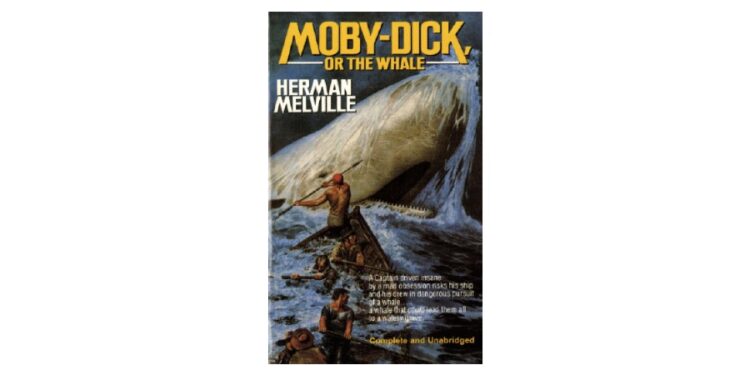Herman Melville’s “Moby-Dick” stands as a timeless masterpiece that transcends the boundaries of its 19th-century origin, weaving a complex narrative that delves into the depths of human nature and the inexorable clash between man and nature. Published in 1851, this epic novel is a testament to Melville’s profound insight into the human psyche and his ability to craft a tale that resonates across generations.
At its core, “Moby-Dick” is a maritime adventure that follows the obsessive quest of Captain Ahab to seek revenge against the elusive white whale, Moby Dick, who had previously destroyed Ahab’s ship and severed his leg. However, the novel is far more than a mere tale of vengeance; it explores themes of existentialism, the consequences of unchecked ambition, and the inscrutable forces of nature.
One of the novel’s enduring strengths lies in Melville’s rich and symbolic prose. The narrative is interspersed with philosophical musings, scientific discourses on whaling, and vivid descriptions of life aboard the Pequod. Melville’s use of symbolism, particularly the white whale itself, elevates the story to a metaphorical level, representing the enigmatic and often destructive forces that exist beyond human control.
The characters in “Moby-Dick” are equally compelling, each representing facets of the human condition. Captain Ahab embodies the perils of unchecked ambition and the destructive nature of revenge, while Ishmael serves as the contemplative observer, offering insightful reflections on life, death, and the vastness of the ocean.
Melville’s narrative structure is innovative for its time, incorporating multiple genres such as adventure, allegory, and even elements of the encyclopedic novel. The novel’s diverse narrative techniques contribute to its timeless appeal, ensuring that readers continue to discover new layers of meaning with each reading.
In conclusion, “Moby-Dick” is a literary treasure that continues to captivate readers with its exploration of profound themes, rich symbolism, and timeless characters. Melville’s magnum opus remains a testament to the enduring power of literature to illuminate the complexities of the human experience and the eternal struggle between man and the vast, mysterious forces of the natural world.
newshub



Recent Comments